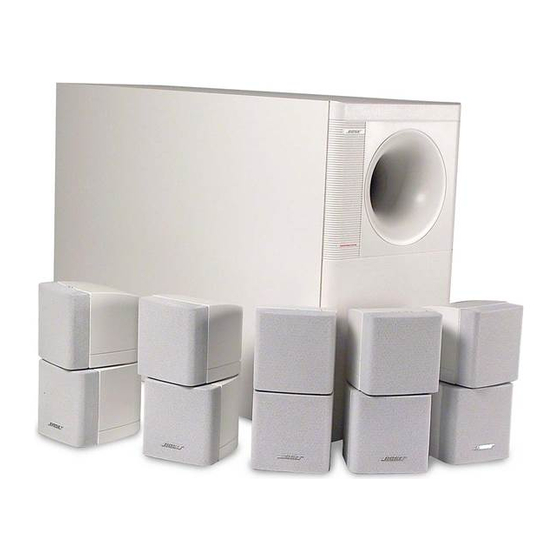
All front and surround channel bass energy is summed within this chamber in much the
same way as a room would sum the bass energy from two separate bass modules. The
key difference with internal bass summing is the results of summation are much better
controlled because the summation conditions are already known (in a room with two
bass sources, their distance from each other and their location within the room heavily
influence bass summation and the loudspeaker designer cannot predict that ahead of
time).
Another important purpose of this chamber is it interacts with Acoustic Mass C to
provide an extra stage of low pass filtering to create a steeper high frequency roll off
slope for the bass module, which serves to reduce localization.
Acoustic Mass C
This is the exit port of the bass module and serves to launch the bass energy into the
room on a column of air (purifying, of course). This port also interacts with Acoustic
Spring C to reproduce the middle range of frequencies of the bass module, while
reducing the cone excursion of all the woofers over this middle range (60Hz to 120Hz).
This port is flared to eliminate any internal air turbulence, which significantly improves
the efficiency of the entire bass module at high listening levels.
Acoustic Spring D
This is the volume of air enclosing the rear portion of the surround channel woofer. Its
main purpose is to load the surround woofer and to help reduce cone excursion.
Acoustic Spring C
(summing chamber)
Acoustic Mass A
Acoustic Mass C
Surround Channel Woofer
Figure 1. AM-10 Bass Module
Left Channel Woofer
Acoustic Mass B
Acoustic Spring A
(Rear chamber)
Acoustic Spring B
(Middle chamber)
Right Channel Woofer
Acoustic Spring D
4
